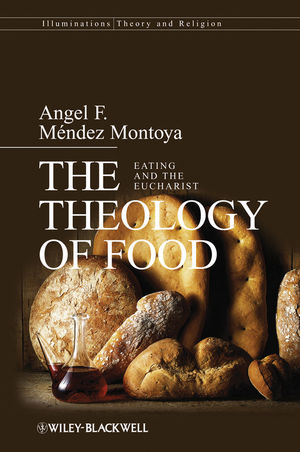The Theology of Food: Eating and the EucharistISBN: 978-1-4051-8967-5
Hardcover
184 pages
March 2009, Wiley-Blackwell
 |
||||||
“Nevertheless, this is an inspiring interpretation of the possibility of reclaiming and reconnecting theology, food, and a fuller eucharistic life.” (The Theology of Food, 1 October 2013)
"For all its erudition, this book is more complex and valuable than a simple examination of Christian consumption. It offers rich reflection on the prophetic and generous ways in which Christianity might still disciple consumers who desire the superabundant grace made material in the flesh of Jesus Christ." (Theological Book Review, 2011)"This much-needed book takes seriously the Churches' unique contribution to understanding the importance of food." (Church Times, 11 February 2011)
"Montoya's book is a delight to read, and is a significant contribution to the effort to apply theological thinking to the everyday realities of embodied life." (Modern Theology, April 2010)
"It is a thought provoking and engaging work on the role of the Eucharist in Christian life." (CHOICE, August 2009)
"This book deserves to be widely read and, if you will forgive
the metaphor, digested." (Christian Century, June
2010)
“[T]his is an inspiring interpretation of the possibility of reclaiming and reconnecting theology, food, and a fuller eucharistic life.” (Interpretation: A Journal of Bible and Theology)
"Eating and drinking feature in most religions, one way or another, and especially in Christianity, where the central act of worshipping God is based on a meal, which also symbolizes the common life of the human race: this book unites Eucharistic theology and politics in an extremely original and yet deeply traditional manner."–Fergus Kerr, University of Edinburgh
"What does it mean to lead a Eucharistic life? What is the
relationship between the Body of Christ and human bodies,
particularly the bodies of marginalized persons? What are the
aesthetic, ethical, and political dimensions of food as
locustheologicus? To address these questions, Angel
Méndez Montoya draws on an extraordinary range of theological,
philosophical, and narrative resources, thus providing us with a
work as rich and delightful to savor as is the Mexican molli
which is the culinary inspiration for Méndez's work."
–Roberto Goizueta, Boston College
"What a pleasure it is to be taken by Angel into such a subtly
Catholic imagination! Here is a universe where generosity and
abundance are prior to lack and to hunger, and where the dualisms
to which we have become accustomed in our anorexic theological
thinking have no place. Here also is a fleshing out of that
generosity by means of concentrating our hearts and minds on what
it means to be fed and to eat. And along with that comes a striking
challenge as to what sort of Eucharistic communities we are to
create. Theologians, philosophers, novelists, and chefs are blended
together in this rich repast which brings to life, more than I can
remember seeing anywhere, the true sense of Manna as fulfilled by
Jesus in John’s Gospel."
–James Alison, Chicago



